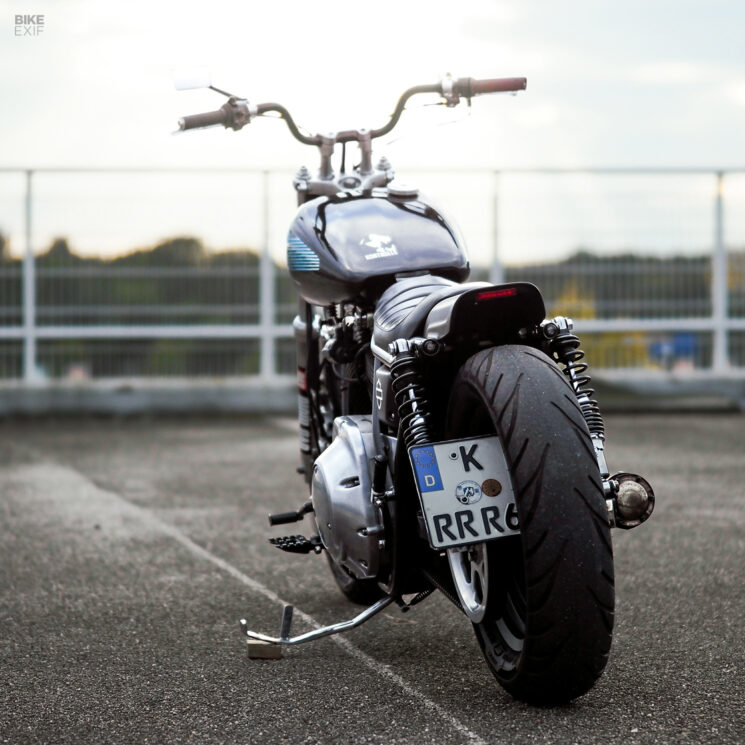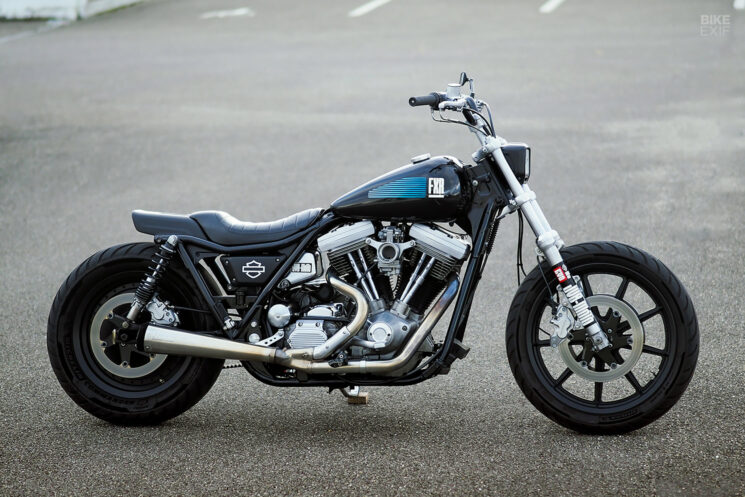
Cries of heartbreak echoed across the internet when Harley-Davidson discontinued the revered Dyna. But it’s easy to forget that the Dyna’s inception caused an outcry of its own. That’s because it replaced what many consider one of The Motor Co.’s most iconic motorcycles—the Harley-Davidson FXR.
Introduced in 1982 as an answer to the sportier bikes coming out of Japan, the FXR quickly became known as a Harley that could carve corners. It was so popular, that Harley brought it back as a limited release in the late 90s, alongside its replacement, the Dyna.
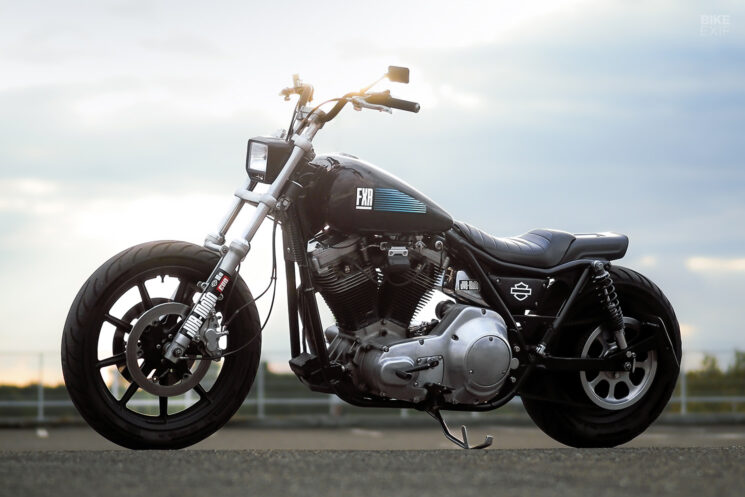
Jens vom Brauck isn’t much of a Harley guy, but that hasn’t stopped him from building one of the slickest custom FXRs we’ve seen. The man behind JvB-moto is known for his modern style, and has a knack for trimming the fat off a bike while perfecting its ergonomics.
“A couple of years ago, I got myself an old 80s Harley Electra Glide as a contrast to all the fast modern bikes I was working on,” he tells us. “Not surprisingly, after some time, I found that I do love the old Evolution engine—but that the heavy bike didn’t really fit my riding style. So when I learned about the FXR, I knew that this would be just the right bike for a project.”
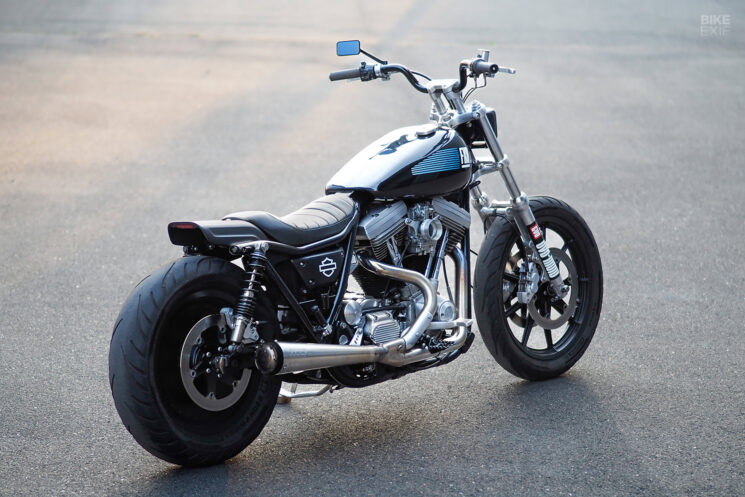
“My chopper friends asked, ‘Why that ugly frame?’ Some people say ‘It’s the ugliest Harley ever, don’t touch it, it’s no good for customizing.’ Yes, it’s got an odd frame, but all the FXR owners you speak to really love their bikes—some of them say it was the best H-D ever built.”
Jens’ FXR is a 1988-model Harley-Davidson FXRS-SP Low Rider Sport Edition. It came to him well-maintained with very little on the clock, so he opted to maintain the original patina, rather than strip the motor out and overhaul it. “I really like the 80s vibe it has,” he adds.
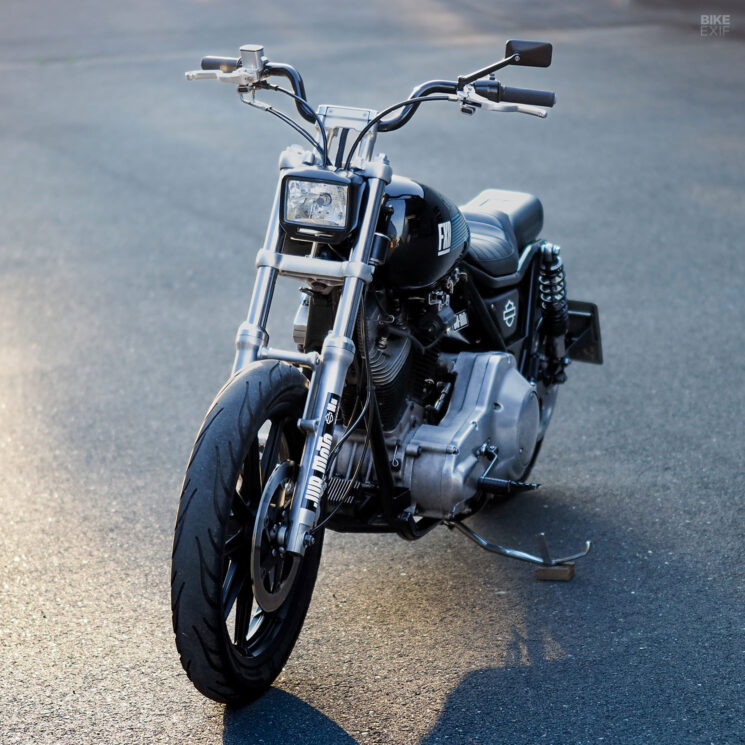
“I like to have that in many of my builds, so I tried to conserve that, by keeping many of the original parts and designing new parts in that style. And I tried to keep it simple. No bling-bling—just parts that make sense; parts that make the bike more enjoyable, lighter, and more nimble.
“I tried to take the ‘Low Rider Sport Edition’ title literally, so the riding position is a mix of cruiser and roadster. I also like the analog feel as a contrast to my latest builds. No fuel injection, no electronic devices, no digital displays, no error messages; very pure riding.”
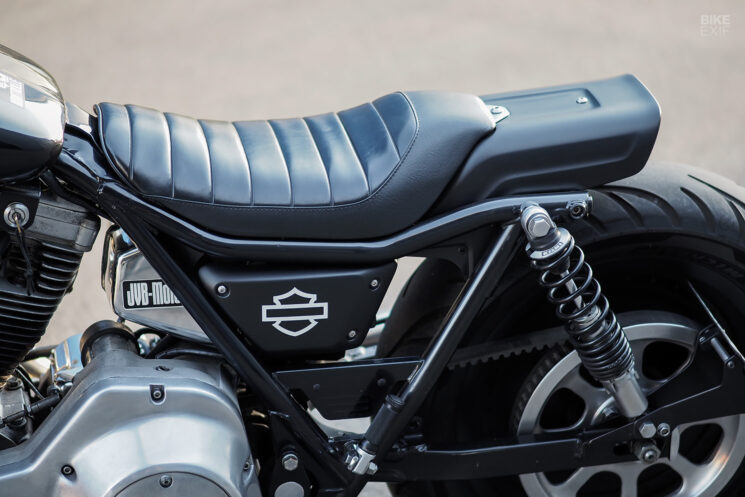
The FXR’s fuel tank is still in play, albeit with a fresh paint job (courtesy of Jen’s uncanny abilities with rattle cans). But the rear half of the Harley has been treated to an extreme makeover. Gone are the traditional fender struts, generous rear fender, and twin seats, and the subframe is now an inch shorter.
The bike now sports a solo seat, nestled against a handmade fiberglass tail section. The whole arrangement works with the kooky vibe of the FXR’s frame instead of battling it, and features a squared-off style that Jens has embraced of late. An LED taillight sits below the lip of the tailpiece, with LED turn signals Frenched into the frame rails.
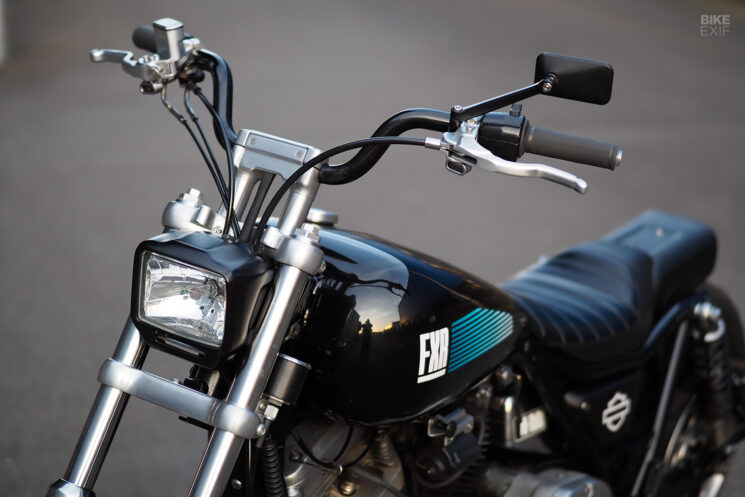
Jens fashioned new fiberglass side covers too, plus a headlight shroud that houses a rectangular light; a look that’s become a JvB-moto signature. One-off risers are mounted to the top yoke, gripping a set of heavily modified Triumph handlebars that Jens plans to reproduce in stainless steel. (He has a long history of producing bolt-on stuff via the European parts specialist Kedo, so most of the parts on this bike could make it into production if there’s interest.)
The throttle and single mirror are from Biltwell Inc., while the switches are repurposed 1980s Kawasaki items, modified to fit the one-inch-thick bars. Tiny LED turn signals poke out from below the clutch and brake levers, while a small MMB speedo sits off to the left of the steering neck, held by a custom-built vibration-dampening mount.
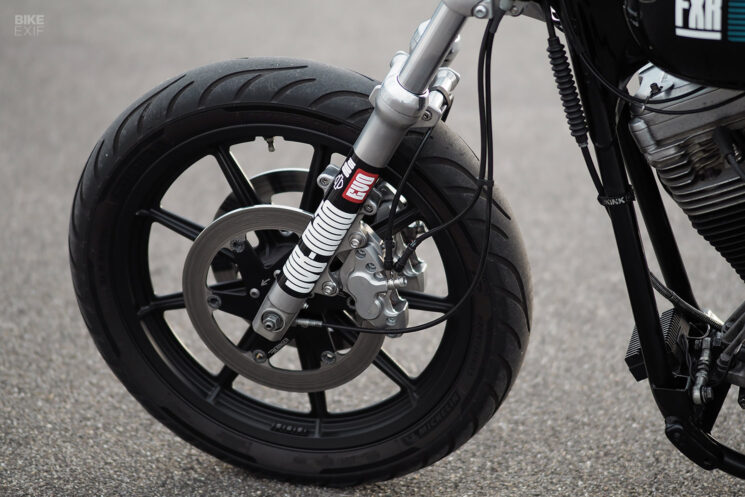
Everything from the bars to the slim tail emphasizes the FXR’s low-riding stance. But Jens took it even further, by fitting shorter-than-stock KONI rear shocks. The forks are stock on the outside, but they’ve been rebuilt with Progressive Suspension springs and preload adjusters, and stabilized by an aluminum fork brace.
Jens retained the bike’s OEM front wheel but swapped the rear for the solid hoop from an FXLR Low Rider Custom. They’re wrapped in Michelin Commander 3 rubber, with a chunky, but not unreasonable, 150-wide tire at the back. Other mods include a narrower belt and pulley, and a full Beringer braking system to ensure that the FXR stops better than it did in the 80s.
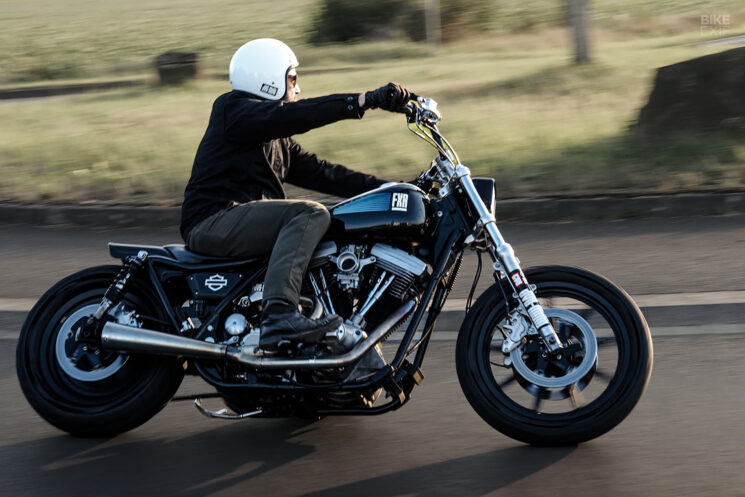
Although Jens didn’t crack open the engine, it’s not quite stock. “It was mildly tuned in the 90s,” he tells us. “I don’t know exactly how much power it makes—but together with the Mikuni flatslide carb, Supertrapp exhaust, and Dyna ignition, it runs pretty damn well.”
“Sure, this bike is not a road racer. But it’s great fun to cruise and to go reasonably fast. With a weight of 245 kilos [540 lbs] and a low center of gravity, it’s a lot lighter and nicer to ride than the modern big twins.”
JvB Moto | Facebook | Instagram | Action photo by Tim Davies
